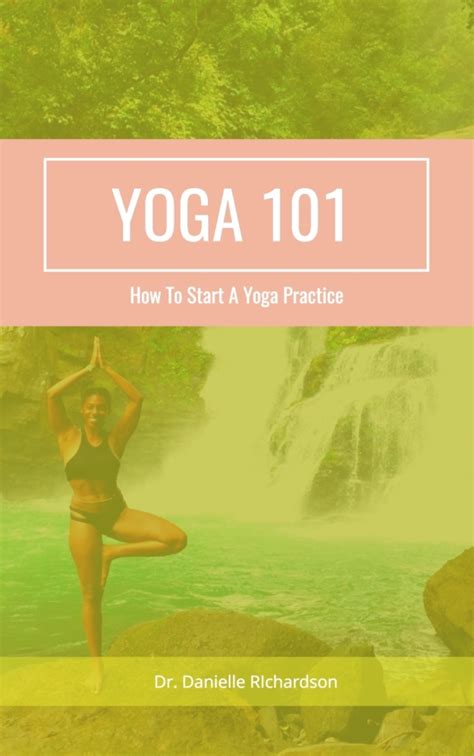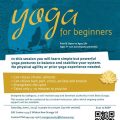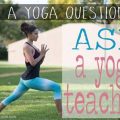Essential Guide to Yoga: Starting Your Journey Right
Yoga is a profound discipline that not only enhances physical well-being but also promotes mental clarity and spiritual growth. For beginners, however, the vastness of yoga can feel overwhelming. From understanding its core principles to selecting the right style, there’s much to explore. In this comprehensive guide, we’ll help you navigate the essentials of yoga, providing clear and accessible insights to set you on the right path for your practice. Whether you’re looking to improve flexibility, gain inner peace, or live a healthier lifestyle, this guide will provide you with the tools to begin.
Key Concepts of Yoga: A Holistic Practice
At its core, yoga integrates the mind, body, and spirit. Understanding these key concepts will provide a strong foundation for your journey:
- Asanas: Physical postures that improve strength, flexibility, and balance.
- Pranayama: Breath control techniques that enhance energy flow and concentration.
- Mindfulness: Awareness of the present moment, a practice central to yoga and meditation.
- Chakras: Energy centers in the body that influence physical, emotional, and spiritual health.
- Ahimsa: The practice of non-violence, a core ethical principle of yoga.
The Historical Roots of Yoga: A Journey Through Time
Yoga is an ancient practice that dates back over 5,000 years. Originating in India, it was initially a spiritual discipline practiced by sages and mystics. The earliest mention of yoga appears in the Rig Veda, one of the oldest texts in human history. As yoga evolved, it absorbed various influences, including Hinduism, Buddhism, and Jainism. In the early 20th century, yoga gained worldwide attention, thanks in part to the efforts of yogis like Swami Vivekananda and T. Krishnamacharya, who brought the practice to the West.
The Current State of Yoga: Popular Styles and Trends
Today, yoga has expanded beyond its spiritual roots to become a widely practiced form of physical exercise and mental well-being. Some of the most popular styles include:
- Hatha Yoga: A beginner-friendly style that focuses on basic postures and breath control.
- Vinyasa Yoga: A dynamic, flow-based practice where movements are synchronized with breath.
- Ashtanga Yoga: A rigorous and structured sequence of poses performed in the same order each time.
- Bikram Yoga: A hot yoga practice performed in a heated room, consisting of a set sequence of 26 poses.
- Restorative Yoga: A relaxing, slow-paced style that emphasizes deep stretching and relaxation.
As the yoga industry grows, it has also embraced trends like yoga retreats, teacher training programs, and wellness tourism. With these developments, it is easier than ever to find a style and community that aligns with your goals and preferences.
Practical Applications of Yoga in Daily Life
Yoga is not confined to the mat—it can become a way of life. Here’s how you can apply yoga principles in everyday situations:
- Mindful Eating: Bringing awareness to what and how you eat can improve digestion and foster a healthier relationship with food.
- Breath Control: Practicing pranayama techniques during stressful moments can help calm the mind and reduce anxiety.
- Physical Awareness: By practicing yoga asanas regularly, you become more aware of your posture and body alignment, preventing injuries and promoting good health.
Case Studies: Real-Life Transformations Through Yoga
Numerous individuals have experienced profound changes through yoga. Here are some real-life examples:
| Individual | Initial Challenge | Yoga Practice | Outcome |
|---|---|---|---|
| Sarah, 34 | Chronic back pain | Restorative Yoga and gentle Hatha practice | Significant pain relief and increased flexibility |
| John, 45 | High-stress job | Vinyasa Yoga and pranayama | Reduced stress levels, improved focus at work |
| Linda, 28 | Anxiety and insomnia | Yin Yoga and breathwork | Better sleep and lower anxiety levels |
| Mike, 52 | Weight management | Ashtanga Yoga and mindful eating | Weight loss and enhanced physical strength |
Stakeholder Analysis: Who Benefits from Yoga?
Yoga benefits a wide array of stakeholders, including:
- Individuals: Improved physical and mental health, enhanced mindfulness, and stress relief.
- Health Professionals: Doctors and therapists can integrate yoga into treatment plans for holistic wellness.
- Yoga Instructors: The growing demand for yoga has opened up career opportunities worldwide.
- Businesses: Wellness programs incorporating yoga can improve employee productivity and satisfaction.
Implementation Guidelines: Starting Your Yoga Practice
Starting your yoga journey can be both exciting and intimidating. Here are some guidelines to help you implement yoga in your daily routine:
- Find a Suitable Class: Whether you prefer in-person or online, choose a class that matches your skill level and goals.
- Start Slow: Yoga is a gradual practice. Begin with beginner-friendly classes and build up to more challenging poses.
- Set Realistic Goals: Define what you hope to achieve with your practice, whether it’s flexibility, strength, or stress relief.
- Stay Consistent: Make yoga a regular part of your routine. Consistency is key to seeing long-term benefits.
Ethical Considerations in Yoga
Yoga carries ethical principles that extend beyond the physical practice. Some important considerations include:
- Cultural Appropriation: Be mindful of the spiritual and cultural origins of yoga, respecting its roots and avoiding superficiality.
- Ahimsa: Practice non-violence not only in physical poses but also in your daily interactions with others.
- Environmental Impact: Consider using eco-friendly yoga mats and clothing to minimize your environmental footprint.
Limitations and Future Research
While yoga is beneficial for many, it is not a one-size-fits-all solution. Future research could explore:
- The long-term effects of yoga on chronic pain conditions
- The psychological impact of yoga on different age groups
- How yoga can be adapted to those with limited mobility or disabilities
- The role of yoga in workplace wellness and productivity
Moreover, as yoga continues to gain popularity, ensuring the quality of instruction and preventing injuries will be essential areas for further exploration.
Expert Commentary on Yoga’s Broader Impact
Yoga has evolved from a niche spiritual practice to a global wellness phenomenon. As we continue to explore its depths, it is clear that yoga’s holistic benefits reach far beyond the physical. Whether you’re a beginner or an advanced practitioner, yoga offers a path to personal growth, stress management, and overall well-being. The key to unlocking its full potential lies in consistent practice, mindful integration of its principles, and respect for its cultural origins.








